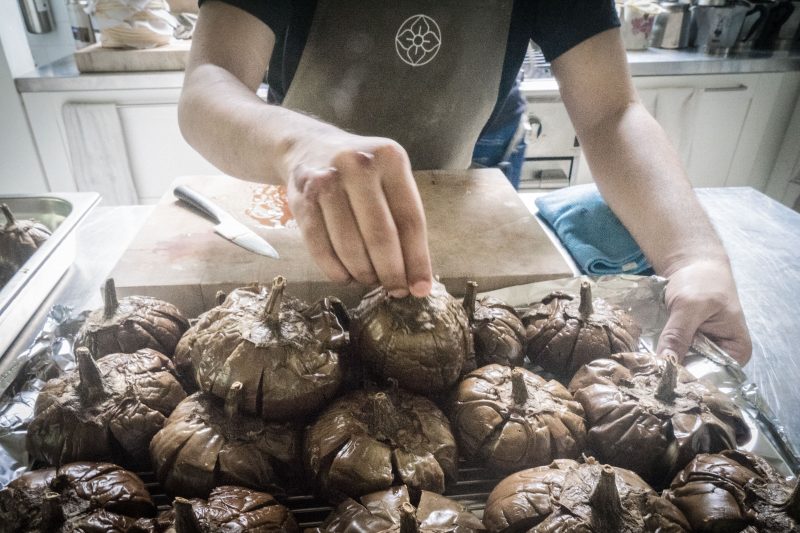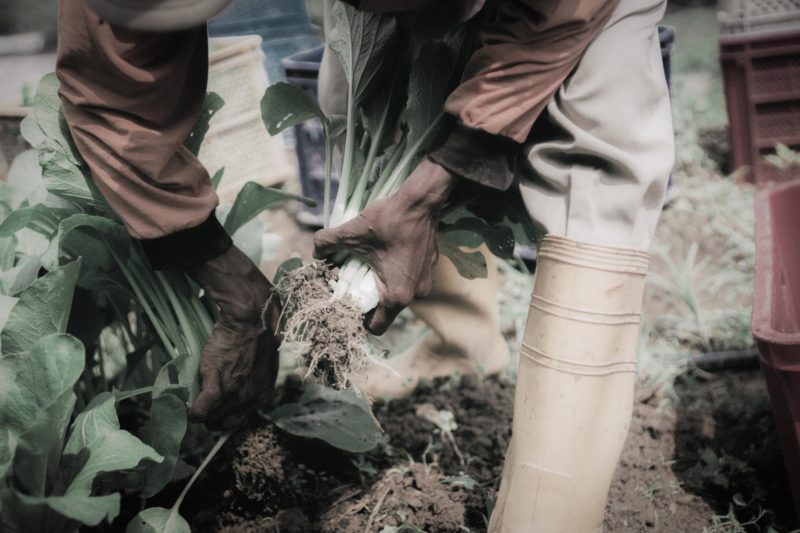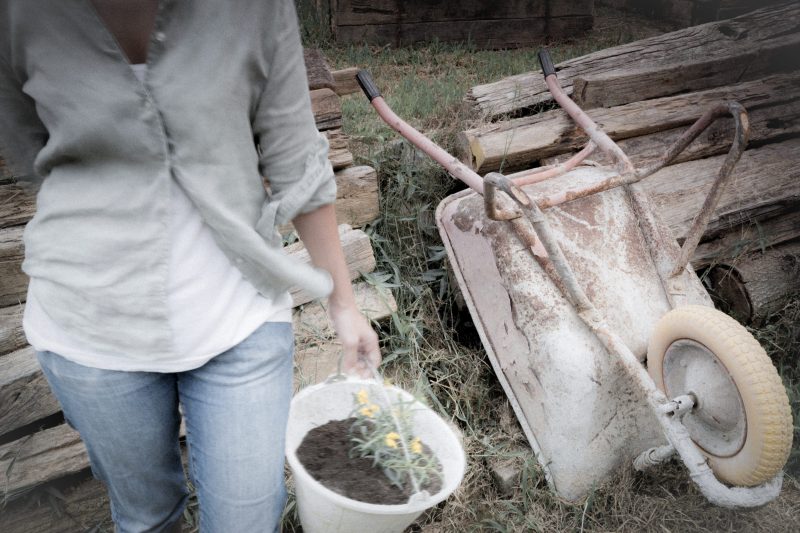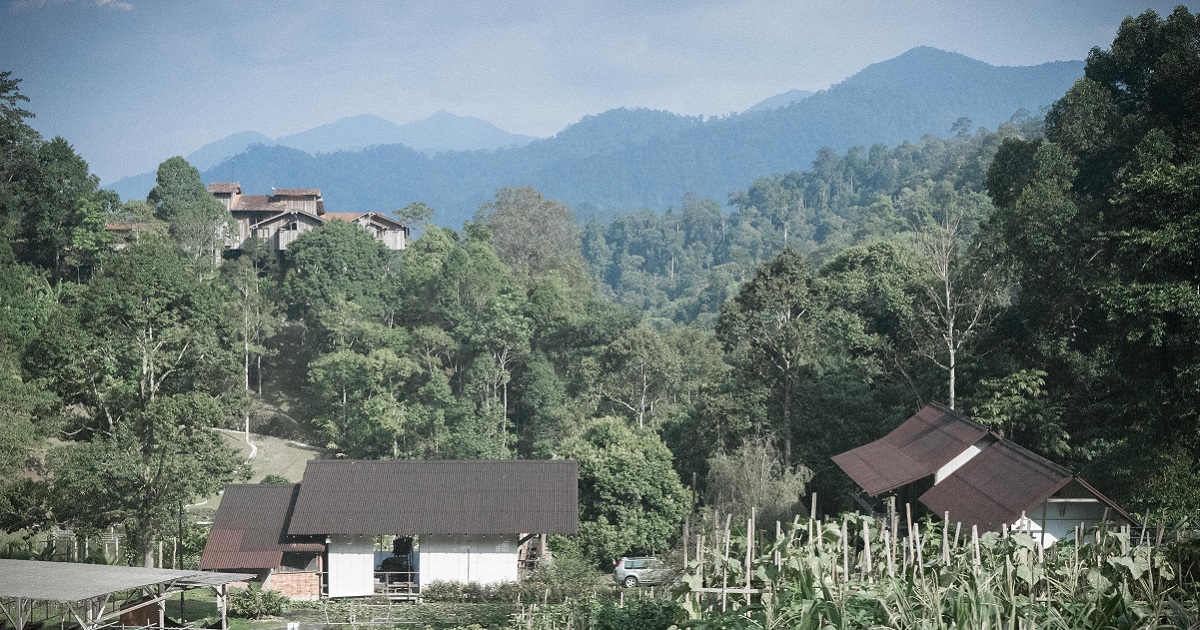Not So Little Effort
Not everything should be at the mercy of the bottom line, say founders of A Little Farm on the Hill. However, self-sustenance, a degree of environmental preservation and profit are key in farming. Here’s their point of view.
Agriculture, we notice, isn’t looked upon by young people as an attractive occupation the world over. The fact that the average age of farmers in the developed world is 55, underlines this. The root of this problem is unsustainably low food prices. It makes for good politics but at the same time makes farming barely feasible for small farmers.
In Malaysia, we also need better institutional support for farmers. Policymakers need to have a vision about agriculture beyond oil palm and giant corporations. Our leaders need to take small business food production seriously before our children will.

At our farm, we don’t place great emphasis on self-sufficiency. Rather, we like to support businesses that help us do what we do. For example, we buy worm casting rather than make it ourselves. This allows us to support a local worm farm. It also keeps our manpower needs in check and deepens the organic farming ecosystem in the country. We believe it’s impossible to do everything ourselves, and it’s in fact undesirable to do so in the larger scheme of things.
Our Story by Pete Teo
A Little Farm on the Hill, which is our 6-acre farm, is located near Janda Baik village in Pahang, Malaysia. We married a decade ago, left our urban life six years ago and moved here. While Lisa was an architect who worked in London and Kuala Lumpur, I taught social theory at the LSE in London, and worked in Hong Kong as a songwriter as well as music producer. After which, I moved to Kuala Lumpur, where I took on jobs in finance and construction before resuming my career in the arts, making music and films for the next two decades.
If you ask us how old we are, we’d say, too young to disco but too old to TikTok. Lisa’s a city girl, she grew up in the capital city while I was born in Tawau, Sabah. Both of us lived in cities until we built this farm. For the longest time, we refused to live in landed properties because we didn’t want a garden, but now we look after nothing but a very large organic vegetable garden. Talk about irony, eh?
The most fundamental difference between our life then and our life now, is time. We were both in extremely time-driven professions where deadlines dictated everything. Time has different implications on a farm. For instance, while it was previously possible for us to shorten time by putting more resources into a task, it’s not possible to do that now. Plants take as long as they take to grow and there is little you can do to change that. So, you quickly learn to be patient and respect the natural cycle of biology. The result is that we have more time to do things we love and actually be with people.

Another change is the physical environment in which we live. Our farm is surrounded by tropical jungle and bisected by two streams. The air is pristine and all you hear are sounds of nature. There is no light pollution so the sky is filled with stars at night. This is very different from the city where air pollution and the never-ending rumble of motor vehicles dominate. Whenever we go to the city now, we wonder how we managed to live in cities for so long.
The trigger to start a farm was a desire to do something different with our lives. Lisa had always been a serious cook and it got to a stage where she wanted to do that more than architecture. Meanwhile, I’d gotten into a space where I was increasingly tired of the media-centricity of my work. So, when the opportunity came to make a change, we grabbed it.
Effort. Diversification. Profit.
Ours is a small farm located atop a hill. So, we called it A Little Farm on the Hill. It’s about 45 minutes by car from Kuala Lumpur. It’s a certified organic farm that also has an exclusive farm-to-table restaurant onsite. We have eight staff and grow about 30 different varieties of fresh produce that we supply to fine dining restaurants in Kuala Lumpur.
Like many small farms throughout the world, we have a diversified revenue stream. While the farm side of our business supplies restaurants in Kuala Lumpur with fresh produce, the restaurant side of our business fills a niche market for high end farm-to-table dining. The two sides are co-dependent and symbiotic.
We heavily rely on the internet and automation. For instance, our irrigation is largely done by automated timers. Likewise, our sales, administrative as well as accounting processes are cloud-based and automated too. This digital backbone allows us to keep headcount down and expenses manageable.

Our farm income is a mix of fresh produce and restaurant sales. We wouldn’t say it’s lucrative although it’s certainly profitable and self-sustaining.
The surest way to raise productivity on our farm is to stop growing crops outdoors and put everything under rain shelters. This takes the rain out of the equation and raises yield during the wet season. But it would also be extremely environmentally unsound to do this. Nothing lives in desert-like soil under rain shelters. There would be no earthworms, no birds, no bees and no beauty. We love the vibrant ecosystem at our farm too much to do this to it. Not everything should be at the mercy of the bottom line.
A Day at the Farm
Work is planned weekly and carried out daily. The day begins with morning meetings by both the farm and hospitality teams. Daily tasks vary from pruning, sowing, harvesting to recipe testing, vegetable pickling, meat smoking, and the like. Everyone then gets on with their allocated chores until lunch time, when we gather to eat before the afternoon’s work. When the day is done, everyone returns to their quarters to cook dinner and rest. With a mix of migrant and local staff living on site, it’s important to nurture a respectful and multicultural ethos here. It’s one of the most important things we do.

There’s a natural connection between growing food and serving food, in that what we do must not only nourish but also taste good. Yet great produce is only possible when it’s grown in healthy soil, which in turn is premised upon the health of the entire ecosystem at our farm. In short, what we do is ultimately about taking beneficial stewardship over the land and everything that dwells upon it. It’s an old fashion idea, but one that’s more relevant than ever in an age of environmental degradation and global pandemic. This aspect of what we do is basic but hugely appealing and nourishing.
Advice, Thoughts and Observations
The global food production system is highly dysfunctional at the moment. Beef agriculture accounts for 30 per cent of the greenhouse gas released into the atmosphere. Synthetic fertilisers and pesticides are killing our fields and rivers. We produce 30 per cent more food than we need yet millions are still starving. We’re not sure about agriculture being the future of business but it certainly needs to change. Most importantly, we need to change the way we consume. The hidden environmental cost of the present situation is unsustainable.
There’s a romantic notion attached to farms like ours, driven by glamorised food programs on television and the increasing alienation of urban life. While the agrarian lifestyle does provide relief to a time-poor urban existence, the media hype doesn’t address the immense hard work and poor financial reward of running a small farm. Thus, it’s important for someone thinking of starting a small farm to know that traditional family farms are closing down all over the world because they don’t have the scale economy to compete with industrialised giants. In such a situation, it’s vital for small farms to provide differentiated services or products.

In our case, we couldn’t possibly survive without building expertise and specialisation in the fine-dining restaurant sector. If we were a traditional small farm supplying Sunday markets or retail stores, we would have closed years ago. It’s incredibly important to know your market and innovate away from competing on price alone.
A Forecast on Future of Farming
We think the agriculture sector will divide itself into two tiers in the future. There’ll be innovative small farms like ours servicing niche markets on the one hand, and giant farming conglomerates dominating the household retail sector on the other. While small farms will largely retain its traditional character and cultivation methods, giant producers will depend on factory-like infrastructure and mass production technology. Conventional agriculture based on chemical inputs will slowly give way to new technology based on microbiology. Non-chemical farming will become the norm in more developed consumer markets.
Their delivery service will bring prepared meals direct from their farm to your table.
Photos courtesy of A Little Farm on the Hill.
